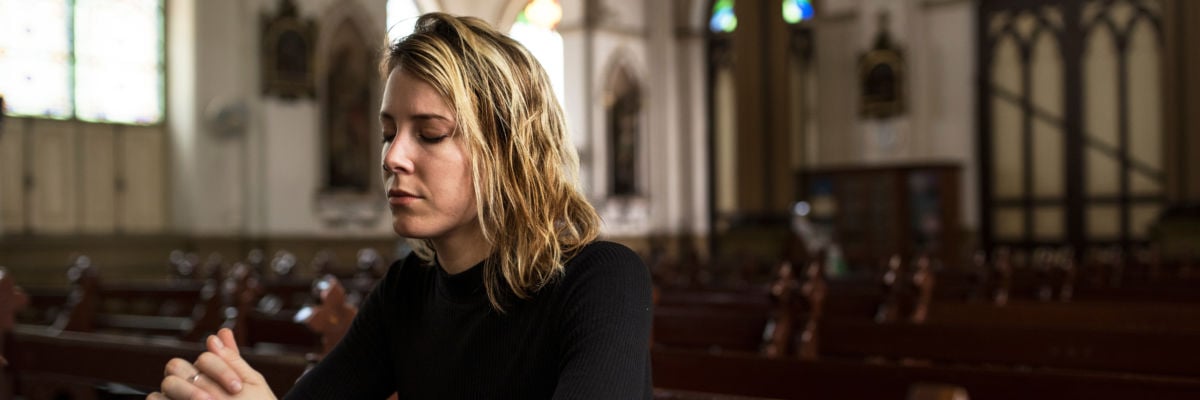
Mark Brumley provides a thoughtful response to a common question posed by evangelists: “Do you think you’re a good person?” Drawing on scripture and Catholic theology, Brumley explains why the answer isn’t a simple yes or no.
Transcript:
To practice my apologetics, I often watch anti-Catholic videos, and among them I watch Ray Comfort from Living Waters. And one thing that he’ll often do is he will ask people if they think they’re a good person, and then after they’ve told him whether they do or not, he’ll explain to them that they’re actually bad people. So I was wondering, what would be a good Catholic response to his question? I think that the way I would handle it is kind of in the direction that you’re going here, that if someone asked me, “Do I think I’m a good person?” I would say, “Well, I think that there is no one good but God alone,” which is what Jesus said. Interestingly enough, he was asked that, he said, “Good,” he was approached by the rich young ruler and said, “A good teacher, what must I do to inherit eternal life?” And Jesus said, “Why do you call me good? There’s no one good but God.” Well, Jesus wasn’t denying that he was good, he wasn’t denying that he was God, but he was helping this person who was working out of an assumption that there’s sort of kind of a human vulnerability to Jesus, and in fact, Jesus’s vulnerability was divine, and not just graced divinity like we participate in the divine nature, but he is actually God, right?
So, you know, when people, and I’ve had this come up with Evangels before, and they’ve used that line on me before, and I say, “No one is good but God alone,” but I believe by virtue of Jesus’s passion, death, and resurrection, and my communion with him, that he has made me righteous, and that by abiding in him, I have God dwelling in me, and I can grow in holiness and goodness of life. So that’s kind of how I respond to it. Now, when there’s a next step, which I think is what you’re alluding to, that has to do with, well, what’s the nature of this sharing in God’s own life, you know? Some Protestants will emphasize, well, it’s a legal declaration, and so on, and Catholics would say, “Well, that doesn’t adequately express what the Bible teaches about belonging to Jesus and being justified,” and so on.
And then some Protestants are going to go further and insist on this once-saved, always-saved idea. But I think the core point, that we’re not good on our own, we’re good because of our relationship with God, and he makes us good and righteous in Jesus. We sin, we repent of that, and we sin, we fall short of the goodness that God wills for us and offers us in Jesus, but fortunately, he gives us his Holy Spirit through the sacrament of reconciliation, that we can be brought back to union with God. And if we are faithful, by grace, we will be found without spot or wrinkle when we come into the fullness of the kingdom. So I think the best way to respond is to explain that, to make the distinctions between the kind of natural goodness and the goodness that we have in Christ, and that it’s all – we’re completely dependent upon him for any even smidgen of goodness that exists in us, in our souls.
That’s how I typically would respond.
Hey, thanks for watching! If you liked this Catholic Answer, be sure to like, subscribe, and check out our live streams Monday through Friday, 3-5pm Pacific. Or find the episode after on YouTube, your favorite podcast platform, or our Catholic Answers app.



